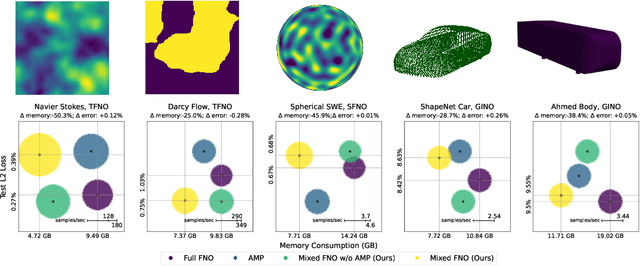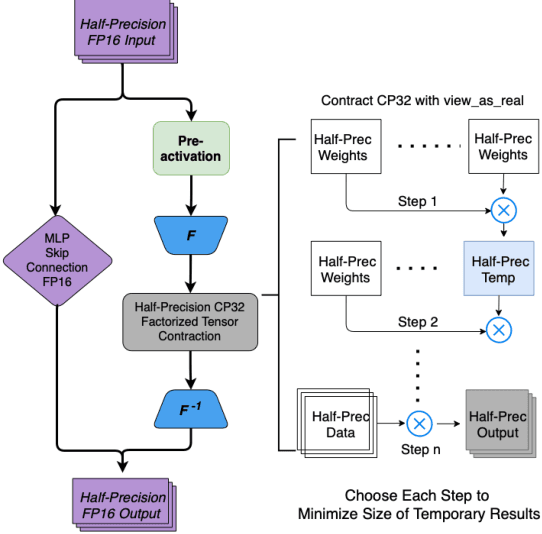Speeding up Fourier Neural Operators via Mixed Precision
Paper and Code
Jul 27, 2023



The Fourier neural operator (FNO) is a powerful technique for learning surrogate maps for partial differential equation (PDE) solution operators. For many real-world applications, which often require high-resolution data points, training time and memory usage are significant bottlenecks. While there are mixed-precision training techniques for standard neural networks, those work for real-valued datatypes on finite dimensions and therefore cannot be directly applied to FNO, which crucially operates in the (complex-valued) Fourier domain and in function spaces. On the other hand, since the Fourier transform is already an approximation (due to discretization error), we do not need to perform the operation at full precision. In this work, we (i) profile memory and runtime for FNO with full and mixed-precision training, (ii) conduct a study on the numerical stability of mixed-precision training of FNO, and (iii) devise a training routine which substantially decreases training time and memory usage (up to 34%), with little or no reduction in accuracy, on the Navier-Stokes and Darcy flow equations. Combined with the recently proposed tensorized FNO (Kossaifi et al., 2023), the resulting model has far better performance while also being significantly faster than the original FNO.
 Add to Chrome
Add to Chrome Add to Firefox
Add to Firefox Add to Edge
Add to Edge